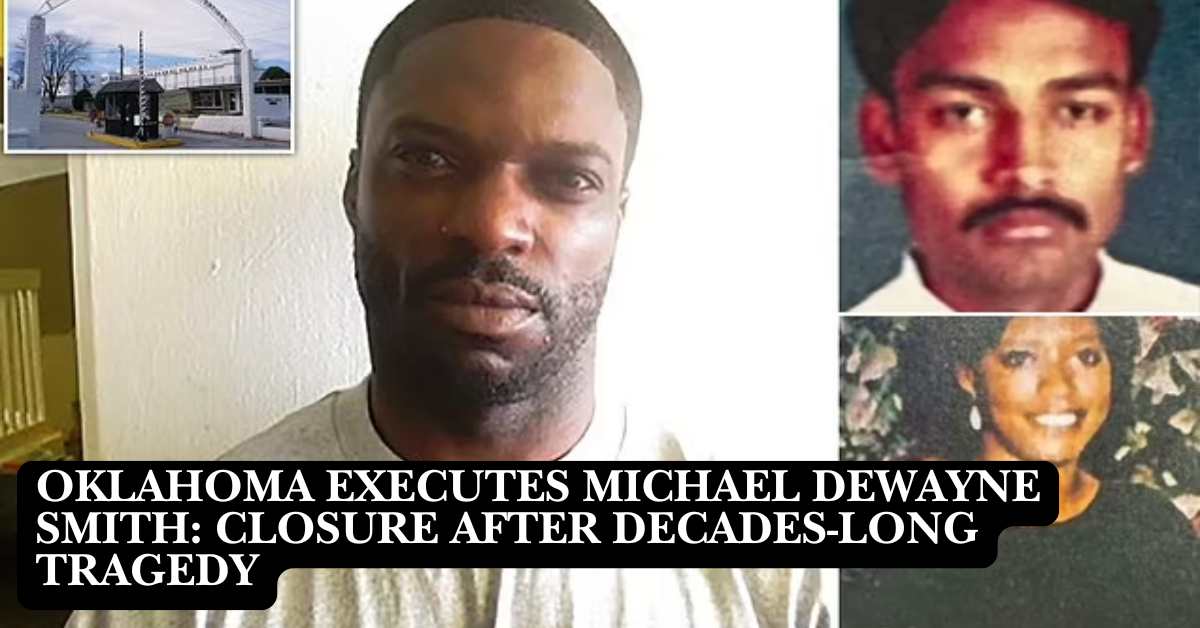In a solemn culmination to a decades-old tragedy, Oklahoma witnessed its first execution of the year as Michael Dewayne Smith, convicted of the 2002 murders of Janet Moore and Sharath Pulluru, was administered a lethal injection at the Oklahoma State Penitentiary in McAlester. The event, tinged with controversy stemming from the state’s history with capital punishment, marked the end of a legal saga that spanned over twenty years.
Smith, 41, met his fate on Thursday morning, the culmination of a legal battle that saw numerous appeals and pleas for clemency. Despite his insistence on innocence, Smith’s convictions stood firm, supported by evidence and confessions deemed highly corroborated by the courts. His execution, swift and methodical, followed a string of unsuccessful attempts to overturn his sentence.
The execution proceedings, meticulously carried out, lasted just over ten minutes. In a solemn moment, Smith declined to offer any last words before his passing, epitomizing the solemnity of the occasion. Despite efforts to stave off his execution, including claims of intellectual disability and substance abuse problems, Smith’s appeals ultimately fell short in the face of overwhelming evidence and legal precedent.
Oklahoma executes Michael Dewayne Smith, convicted of killing 2 people in 2002 https://t.co/VjEj0LehDH
— CBS News (@CBSNews) April 4, 2024
The decision to deny clemency, echoed by Attorney General Gentner Drummond, underscored the gravity of Smith’s crimes and the legal certainty surrounding his guilt. Drummond’s assertion of Smith’s “ruthless” nature and the rejection of claims of intellectual disability further solidified the legal foundation for the execution.
Smith’s case, emblematic of Oklahoma’s tumultuous relationship with capital punishment, drew attention to broader issues surrounding the death penalty in the state. Oklahoma’s history, marred by botched executions and controversial lethal injection protocols, underscores the complexity of administering capital punishment in a manner consistent with legal and ethical standards.
As Smith’s chapter draws to a close, attention shifts to the broader implications for Oklahoma’s death row population. With ongoing legal battles and public scrutiny surrounding cases like that of Richard Glossip, the state grapples with questions of justice, fairness, and the administration of capital punishment in a manner that upholds the integrity of the legal system.
In the aftermath of Smith’s execution, Oklahoma stands at a crossroads, grappling with the legacy of its past while navigating the complexities of its present legal landscape. The execution of Michael Dewayne Smith serves as a stark reminder of the enduring debate surrounding the death penalty and the profound impact it has on the lives of those involved.
Sarah’s View:
Amidst a somber atmosphere, Oklahoma recently witnessed the first execution of the year. Michael Dewayne Smith, convicted for the 2002 murders of Janet Moore and Sharath Pulluru, faced his fate with a lethal injection at the Oklahoma State Penitentiary. This event marked the culmination of a legal battle spanning over two decades. Despite Smith’s claims of innocence, his convictions persisted through numerous appeals. The execution, swift and solemn, lasted a mere ten minutes, as Smith chose not to utter any final words. Attorney General Gentner Drummond’s denial of clemency highlighted the severity of Smith’s crimes and the legal certainty surrounding his guilt. This case reflects Oklahoma’s complex relationship with capital punishment, prompting broader discussions on justice and the ethical administration of the death penalty. As the state grapples with its past and present, Smith’s execution underscores the enduring debate on this contentious issue.











